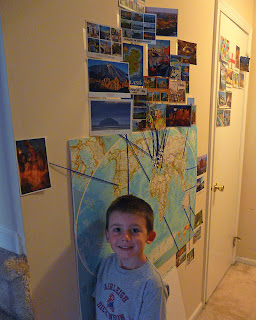A friend, who I
will call Charlotte, and I had gone to visit my parents. After dinner, we sat
around the table playing Catch Phrase. For those of you who have never played,
it is a cross between hot potato and pass word. A beeping disk presents one
player with a word or phrase, and that player must give his partner a clue or
clues so she can accurately guess the words. When the partner guesses correctly,
the disk gets passed to the next team. Which ever team is caught holding the
disk when the buzzer sounds loses a point. My father and Charlotte teamed up. I
sided with my mother.
Some
words and phrases are easy, others are more challenging. Sometimes you expect
your given word to be easy but it proves to be impossible. Scotland was
one such word. I passed the disk to my dad. He read the word, and glanced at Charlotte,
“The country north of England.” Expecting an immediate response, he had already
begun to pass the disk to my mom. But Charlotte stared blankly waiting for
another clue. My dad repeated, “The country north of England.” The stare intensified. My
dad looked incredulous, “The country north of England.” When Charlotte finally
spoke the words were not what he had expected, “I don’t know.” Exasperated, he
raised his voice, as if volume would somehow illuminate the answer. “THE
COUNTRY NORTH OF ENGLAND!”
Charlotte shrugged. Dad tossed the disk. The buzzer sounded.
Sadly,
Charlotte is not alone. I have encountered many Americans who seem disinterested
or uninformed about world geography, culture and history. I can’t forget the
teacher who had never heard of Machu
Picchu. Nor can I forget the friend who excitedly
exclaimed, “I’ve always wanted to go to Italy,”
when I told her I was going to Nepal.
Then there was the neighbor who thought all Koreans live in straw huts. I blame
the school system, the same school system my son will be attending full time in
the fall. I don’t want my son to grow up ignorant of the world. I want him to
have a fundamental understanding of world history and a basic interest in
foreign places. I want him to know that other places and people matter as much
as we do. But how could I begin to supplement the curriculum at home and make
it fun for a five year old? Michener novels are too long and they don’t have
any pictures to anchor a child’s interest. And textbooks are boring for just
about everyone. However, all kids love to receive mail. My son in no exception.
When he gets mail his entire face glows. So I put out a request for postcards
from abroad. The response has been
overwhelming. Family, friends and even strangers have been kind enough to pick
up postcards on their excursions overseas. My son loves getting them and meticulously
pinning them to the map in our living room.
Through
the postcards, he has learned to identify where certain countries are located
in relation to others. But the project has grown to incorporate other aspects
of curriculum he will eventually encounter. Recently, he started graphing the
distance from New York
to the capitals of the countries from which he has received a postcard. He is
also researching and writing books about various countries. The research is
simple. We look at pictures and talk about whatever snags his interest. He
loves statues. Whenever he sees one he needs to know who it is and why that
particular person is important. We also read picture books, fairytales and
folktales which he greatly enjoys. Stories about Baba Yaga in Russia have become his favorite. We
checked out every Baba Yaga book in our library – who know there were so many -
and he makes me read them over and over again until the different plots becomes
embedded in his brain. Following the research, he writes his book. The books
are short, consisting of five pages with only a sentence or two on each page,
highlighting the facts he found most interesting or appealing. For Italy, pizza
and gelato took precedence over the Leaning Tower of Pisa and the Coliseum.
Lastly, he cuts out pictures to illustrate his words. Today, he informed me
that for his next book he wants to attempt a fictional story that takes place
in a factual land. He has already stolen two of my characters and seems to
breathe life into them more easily than I do.
Last
week, he was writing about Denmark.
No book about Scandinavia would be complete
without Vikings. One picture he looked at showed a map of all the places in the
world the Vikings explored, conquered or pillaged. He was enthralled by how far
they traveled and how much they had seen. In the middle of writing a sentence about
them, he looked up at me and declared, “Some day I want to be just like the
Vikings.”
“You
do,” I said, a little taken aback, hoping he didn’t have dark intentions of
ravaging Europe. “How so?” I asked.
“I
want to explore the whole world.”
“Really!”
I was excited, silently patting myself on the back and congratulating myself
for the success of the project. He wanted to know more about the world. Mission accomplished! What
more could I want? But then my mouth betrayed me. It opened on its own, “And where
would you like to go first?”
“Back
to Disneyworld,” he answered, his smile wide,
his eyes dancing in anticipation.
Oh
well, I sighed to myself, he is only five.
At
least, I can take comfort in the fact that Legoland in Denmark, with a side
trip to see the Little Mermaid, is second on his list.
And,
unlike Charlotte, he does know that Scotland is the country north of England.

No comments:
Post a Comment